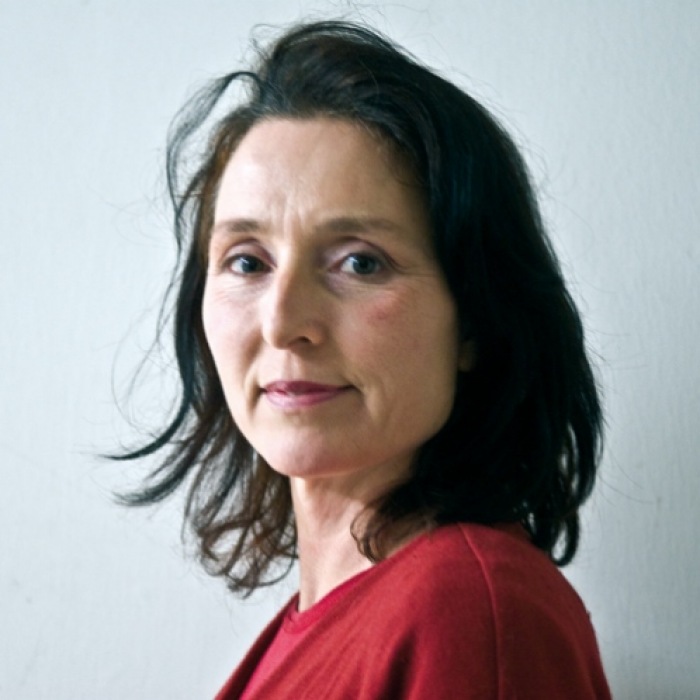"Life's Unfair, but Beautiful"
Humanist and gbs adviser Fiona Lorenz died at age 51 in Potsdam, Germany

fiona_lorenz.jpg
Photo: Evelin Frerk
She fought for more than thirteen years against recurring tumours in her body. On Tuesday morning, social scientist and author Fiona Lorenz died in Potsdam at age 51. A eulogy by Michael Schmidt-Salomon.
With hardly anyone have I discussed, celebrated, and suffered so much. Fiona was not only one of my best friends, but also one of my most important intellectual companions. She read each of my books in advance and improved them with sensible advice. Just one week before her death, when the end was already foreseeable, she found the strength to correct a new book manuscript that will be published in the coming months. I have hardly met a person who was as brave, as courageous, as committed as she was. Fiona did not let herself be defeated, not even when her life was getting tough, which was unfortunately often the case. I always admired her phenomenal perseverance, her unconditional will to walk upright.
We first met 25 years ago during our studies and quickly realized that we were on the same wavelength. After just a few weeks we founded a philosophical discussion group in which we debated Kant, Nietzsche, Schopenhauer, Einstein, or Freud. A short time later we organized a symposium with the "Trierer Institut für angewandtes Denken" ("Trier Institute for Applied Thinking") on the occasion of Karl Marx's 175th birthday. Fiona was also involved when we brought abstract issues such as "social justice" or "citizen participation" onto the streets with the "Büro für ungewöhnliche Maßnahmen" ("Office for Unusual Measures"). Only the topic "criticism of religion" was initially not of much interest to her. Since she already in her childhood had liberated herself from all religious ideas, it was simply unimaginable for her that adult people could follow religious convictions that obviously contradicted all reason.
In the middle of the 2000s, however, she realized that she improperly judged others by her own standards. Within a very short time she became acquainted with literature critical of religion. In 2005 she joined the Giordano Bruno Stiftung, in 2007 she was among the first editors of Humanistischer Pressedienst (Humanistic Press Service), in 2009 she assumed the position of deputy chief editor. In the same year she published her book "Wozu brauche ich einen Gott? Gespräche mit Abtrünnigen und Ungläubigen" ("Why should I Need God? Conversations with apostates and infidels"), to which Ralf König contributed the illustrations. In addition to her activities on the advisory board of the Giordano Bruno Stiftung, Fiona was co-founder of the Humanistische Verband Rheinland-Pfalz (Humanistic Association Rhineland-Palatinate), the Luxembourg Alliance of Humanists, Atheists, and Agnostics, she was an active member of the gbs regional group Trier, and, after her move to Potsdam, of the Evolutionäre Humanisten Berlin-Brandenburg (Evolutionary Humanists Berlin-Brandenburg).
In a way, Fiona was lucky: she had a wonderful charisma, a razor-sharp mind, versatile talents, and great courage to try new things. I remember well how in 2006, as a film director, she brought to stage an impressive production of the "Vagina-Monologues" without any previous experience in theatre work. Five years earlier, however, a shadow had already fallen upon her life that she would never be able to escape. At age 38 she was diagnosed with breast cancer, followed by surgery and chemotherapy. Three years later the physicians recognized a choroidal metastasis, a particularly aggressive tumor that leads to rapid death in many patients. Fiona survived.
In 2009 she told me about a devastating new diagnosis from her doctor on the phone: The tumors had spread throughout her entire body. "Life's unfair, but beautiful," she said then. This sentence is deeply engraved in my memory and I later included it in my book "Hoffnung Mensch". As an enthusiast of high quality television series, Fiona began to divide her chemotherapies into seasons and episodes. At the end she reached season 16.
In a state in which the vast majority of people remain lying in bed, she went on a train journey to visit her youngest daughter Lilias ("Susie Smartypants" from the gbs video with the same name) one last time. After this her strength was exhausted. Her daughter Merle, her best friend, and I have been with her for her last few hours. Fiona died as brave and upright as she had lived. We'll never forget her.
